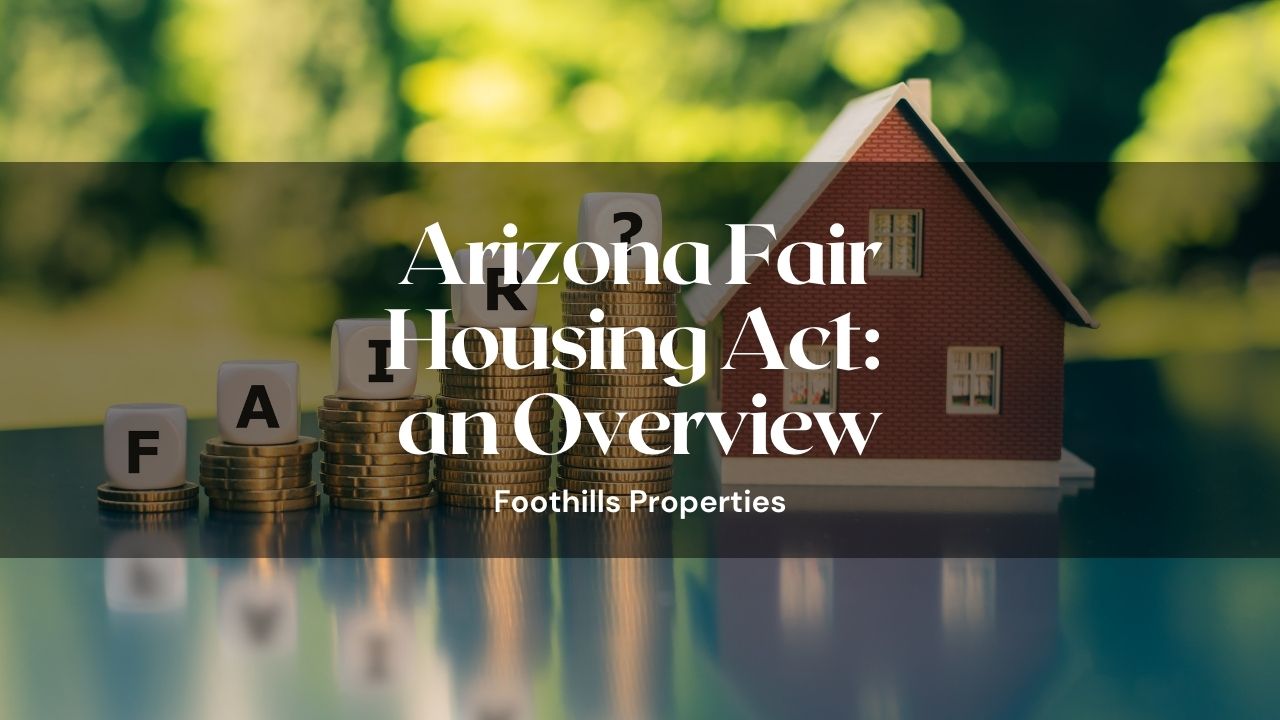
Every tenant in Arizona has a right to be treated fairly and equally. The Fair Housing Act was passed by Congress in 1968 to eliminate housing discrimination that was rife in housing-related matters, from landlords to real estate professionals.
Back then, housing discrimination based on race, for example, was commonplace. It was a regular occurrence for landlords to turn away prospective tenants on the basis of their characteristics or deny reasonable accommodations to those with disabilities.
Since its enactment in 1968, the FHA has been amended multiple times to include even more protected classes. At the federal level, the Fair Housing Act Arizona protects 7 classes: race, color, national origin, religion, sex, disability, and familial status.
Various states, including Arizona, have passed legislation to add even more protected characteristics. These depend largely on the specific area where you live in Arizona and may include sexual orientation, gender identity, ancestry or national origin, age, and marital status.
Enforcement of the Fair Housing Act
The Arizona Attorney General’s Office is responsible for enforcing the act and identifying housing discrimination. The same office is also tasked with the responsibility of conducting civil education in regards to fair housing and the requirements of civil rights laws. In many cases, illegal housing discrimination is accidental due to landlords simply not being aware of the laws.
Penalties for Fair Housing Act Violation
Like landlord-tenant laws in general, there are penalties for violating the act, some of which are severe. When it comes to housing services, the penalties can be as follows as per the federal fair housing laws:You risk getting sued by the Attorney General’s Office if a tenant reports you for discriminating against them
You risk getting sued by the Attorney General’s Office if a tenant reports you for discriminating against them
If found guilty, you may be liable for paying the complainant a sum of up to $65,000 in damages
A court may issue an injunction, particularly in cases where they think prompt action is necessary to prevent further harm
Exemptions from Fair Housing Laws
Exemptions to the Fair Housing Act exist. As per the Federal Fair Housing laws, special circumstances in regards to fair housing include:
Housing operated by private or religious organizations that limit occupancy to members
A dwelling with four or fewer units, and the owner lives in one of the units
Single-family homes, as long as it’s rented out by the owner and they don’t own more than 3 homes at a time
Arizona Fair Housing Act: Everything Landlords Must Know
1. Prohibited Actions
The following actions are illegal for housing providers to do, as per the FHA and fair housing law:
Harassment, such as racial and sexual slurs or threats
Engaging in retaliation or intimidation against a person who complains about housing discrimination
Failing or refusing to provide wheelchair-accessible housing
Providing different terms and conditions for different tenants
Denying services that are available to others
Telling a rental applicant that a housing option is no longer available for rent when it really is
Requesting a larger security deposit
2. Rental Advertising
Of course, it’s in your best interests as a landlord to rent to a good tenant. That is, among other things, one that will pay rent on time, care for your property, and rent long-term. Still, you must ensure that you find this tenant without discriminating against certain classes of prospective tenants.
Specifically, you must ensure your rental ad is free of any discriminatory statements. You’ll want to avoid including statements such as: “Christians Only,” “No Blacks,” “Males Preferred,” or “No Children.
As a rule of thumb, focus on describing what your property offers rather than the kind of tenant you want. Otherwise, this may count as discrimination.
3. Tenant Screening
One of the most important aspects of leasing is tenant screening. Every Arizona landlord dreams of renting to the ideal tenant. While there is no crime in this, you should make sure your tenant selection criteria abides by the FHA.
Just as you’d avoid certain statements in your advertisement, you should also avoid certain statements when screening tenants.
The following tenant screening questions are things a person should never ask if you want to avoid fair housing complaint:
Are you married?
How many children do you have or are you planning to have children?
Are you a Christian?
What’s your first language?
What disability do you have?
Are you white or Hispanic?
Whether inadvertently or not, these are questions you’ll want to avoid at all costs under fair housing regulations.
Some of the tenant qualifying questions that are okay for a person to ask prospective tenants include:
Why are you leaving your current home?
Will you be able to pass a background and credit check?
Do you have any pets, and what kind?
Are you capable of paying move-in costs upon signing a lease?
What is your preferred move-in date?
4. Disabled Tenants
Disabled tenants have special laws under both the Americans with Disabilities Act and the FHA as a protected class. So, whether you allow pets into your rental or not, you cannot deny housing or housing assistance based on a prospective tenant having a service animal or any other reasonable accommodations. Property owners also can't charge a larger security deposit based on worries that extra damage will occur due to a disability a person may have.
In addition, landlords are required to make reasonable accommodations for people living with disabilities. A disabled person is one who meets any of the following characteristics:
Has a history of disabilities
Has mental or physical disabilities that impacts at least one major life activity
A person who others regard to have a disability
5. Tenant Eviction
As a landlord, you have a right to evict your tenant for certain reasons. For example, due to nonpayment of rent, excessive property damage, and violations of the lease agreement. 
Please note, however, that housing providers cannot engage in discriminatory eviction according to the fair housing rights. That is, evicting a tenant on the sole basis of belonging to a certain class, which goes against fair housing regulations. The following are two examples of what a discriminatory eviction according to fair housing rights looks like:
You rent to a young couple and, one year down the line, you notice the wife is now pregnant. You don’t want a crying baby to disrupt other tenants in your rental property, so you think of evicting them. Familial status is a protected class, which would make the eviction landlord discrimination
You rent to a Jewish tenant and, during Hanukkah, they put a menorah in their window. You file for their eviction because you think that the menorah might discourage Christians from renting the home. Just like familial status and national origin, religion is a protected class when it comes to Fair Housing law
Bottom Line
The Fair Housing Act is vital to follow if you want a successful and legally compliant rental property ownership experience. By complying with the guidelines above, your rental investment will operate smoothly.
Do you still need further help? If you do, Foothills Properties can help! We provide property management services to Tucson and the surrounding areas. Our team understands all the Arizona laws and will help you achieve peace of mind. Contact us today for all your property management needs!








